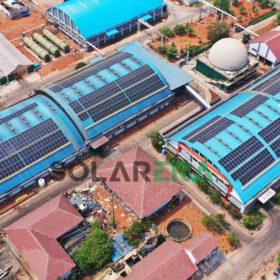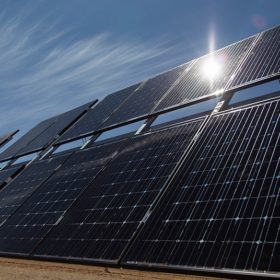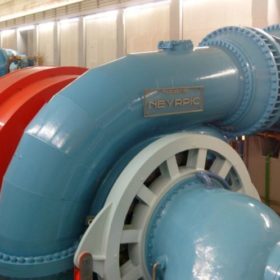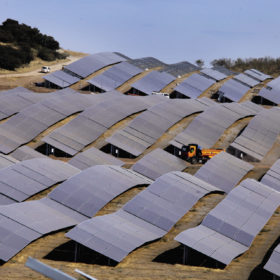PV with gravity storage, redox flow batteries in buildings
Indian researchers have developed a new hybrid system featuring a conventional rooftop PV system, a solar tree, two gravity power modules for building (GPMBs), and a vanadium redox flow battery (VRFB), with power exclusively provided by the two solar installations.
India installed 1.9 GW of ‘open-access’ renewables in FY 2021-22
India has surpassed 10 GW of overall renewables capacity installed for offtake through open access.
Amended Energy Conservation Bill to drive renewables adoption
The amended Energy Conservation Bill sets a minimum usage clause for non-fossil fuel by high carbon-emitting sectors such as power, transport, industry, and buildings. It also includes provisions to incentivize decarbonization efforts by allowing carbon trading.
India may fall behind its 2030 EV sales forecast
A new report says India will have only 50 million electric vehicles (EVs) on road by 2030 despite a ramp-up in domestic manufacturing, falling behind by 40% on the cumulative sales projections by NITI Aayog. It also recommends policy measures to improve India’s chances of realizing 80 million EV sales by 2030.
TERI draws up roadmap to India’s 2030 renewable energy goal
A new report by The Energy and Resources Institute (TERI) examines the challenges before India in achieving its ambitious target of having 500 GW non-fossil fuel capacity and meeting 50% of its energy requirements from renewables by 2030. It also discusses feasible pathways for achieving these.
Emmvee eyes early-mover advantage with wafer-to-module production
Bengaluru-based Emmvee Photovoltaic has a 1.25 GW module manufacturing facility that can produce polycrystalline and mono PERC solar panels, with the ability to upgrade to TOPCon. By the end of 2023, it will raise its module capacity to 3 GW by adding new units, including 1.5 GW of wafer-to-module capacity. Suhas Donthi, director-sales and operations, spoke to pv magazine about current demand for Indian manufacturers and what’s in store.
Jharkhand to install 4 GW of solar power generation capacity in five years
Under the Solar Energy Policy 2022, the Indian state tagets installing about 3 GW of utility-scale solar, 720 MW of distributed generation, and 280 MW off-grid capacity from fiscal 2022-23 to 2026-27.
Solar module price increases to affect returns on 4.4 GW of solar
Solar cell and module prices have increased by more than 40% over the last 18 months, driven by polysilicon prices. However, bid tariffs has remained lower than what is needed to mitigate the rise in module prices. The risk of lower returns is significant for 4.4 GW of projects that have been awarded over the past 18 months, with tariffs below INR 2.2 ($0.028)/kWh.
New pricing mechanism for pumped-hydro storage in India
A new report recommends a differential pricing mechanism for pumped-hydro energy storage (PHES) projects in pumping (off-peak operation) and generating mode (peak operation). The pricing mechanism for PHES should be based on specific use cases like peak load shaving and the smoothing of renewable energy generation.
Spanish court orders Iberdrola to dismantle 60% of 500 MW operational PV plant
A Spanish court has ruled that Spain’s largest operational PV project – the 500 MW Nuñez de Balboa solar plant – occupies a piece of land that was illegally expropriated. Project owner Iberdrola must now shut down a large portion of the installation.













